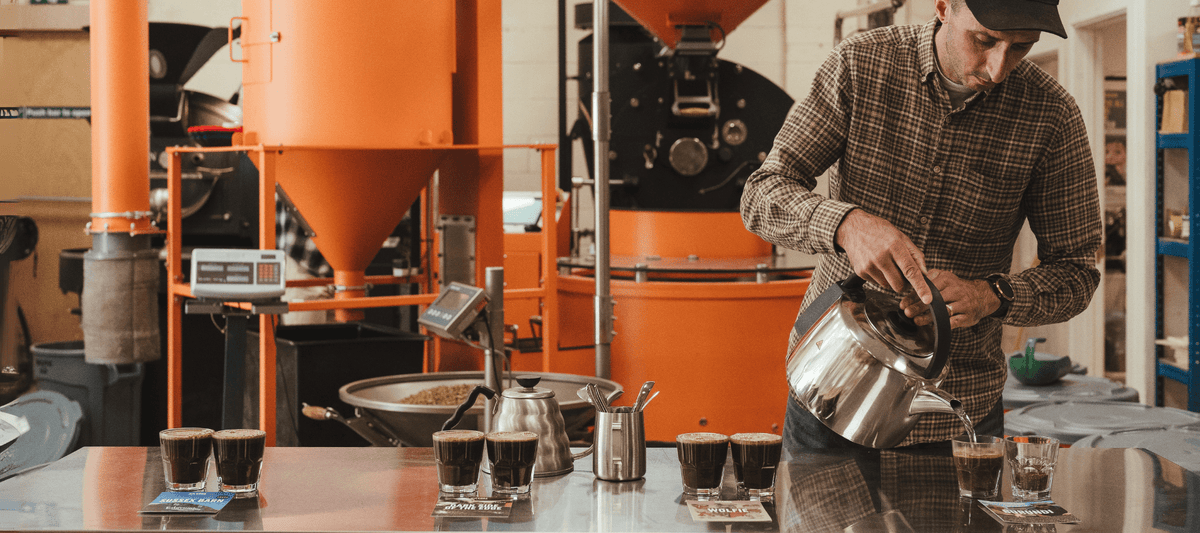
What's so special about specialty coffee?
|
|
Time to read 4 min
|
|
Time to read 4 min
Indeed, there is a time and place to offer suggestions or even try the hard sell on expectant, bleary-eyed customers, but it's definitely not at 8am. For early morning commuters, their first cup of coffee will determine whether they have a good or a bad day. They want and need the same thing at the same time, consistently. Some will want to talk, some will require silent ritual while the caffeine does its wonderful work. Coffee and cafe culture is more competitive than ever and the first ten minutes of service will determine whether your customer returns the next day or not. Get it wrong and you can wave them good-bye.
That first cup is so precious and important that it's no wonder that many people these days have decided to remove the unpredictability from their routines and have invested in good home setups with which they can take matters into their own hands.
Coffee businesses also know that there is another commodity (alongside coffee) of equal import: time, which is why given all this many specialty coffee businesses realised the great opportunity in fuss-free, fast and dare I say even 'instant' coffee products like pods and sachets. And ultimately, if this makes specialty coffee more accessible and available to more consumers it's hard to argue that this is a bad thing.
So, while I’m definitely not here to interfere with your morning routine, I am here to point out that you can have it both ways - great coffee with no additional labour or time required. And now that there is almost no difference in the price of buying low quality, instant coffee products and reaching for a bag of specialty beans which most supermarkets now house on the same shelf, there’s no reason not to switch and a multitude or reasons why you should. Not least because, as my old mentor drilled into me, life really is too short for bad coffee.
Commercial or 'commodity' coffee i.e. non-specialty grade coffee generally indicates two things: lower quality (less flavour) and less traceability, since the coffee may have come from many sources rather than one. Here, flavour is sacrificed for scale, but the farmers or co-operatives supplying those beans are usually paid commodity (lower) prices, often barely enough to cover the costs of farming operations and maintenance, that would otherwise drive quality, provide a better living income and enable sustainable investments in the coffee supply chain’s of developing, producing countries.
The result? usually a cup that's roasted dark, often to hide many of the defects prevalent in large commodity lots of coffee, meaning a drinkable but flat cup of coffee that is disconnected from its own providence, something we as proponents of specialty coffee hold as the highest ethical principle.
I get that commercial instant coffee is convenient. But If you care about what you’re drinking and where it came from, it's time switch your brew.
Specialty coffee flips the script. Within the specialty code, coffee is carefully sourced, graded, and roasted to highlight its natural flavour and character, while importantly connecting consumer to the coffee's origin through traceability and story-telling.
Traceability is central. The difference you'll start to notice is that bags often list the farm, region, altitude, and producer details, connecting you directly to the grower. Many roasters build direct trade relationships, paying farmers fairly and supporting sustainable practices.
As mentioned, we're in a fantastic time for coffee because of brands pioneering better products that are accessible and easy to brew at home. Some people want to create long, slow, mindful rituals, some people just need a short sharp hit. You can have both - the key is your beans.So if you're still on instant and just love the convenience of a quick scoop and a pour,
there is a smarter alternative with no extra time drain but a lot more bang for your buck. I recommend picking up a bag of freshly roasted and ground beans and a cafetiere. It's the best and easiest way to make the jump into the world of better coffee and I will guarantee that both your wallet and your taste buds will thank you.
